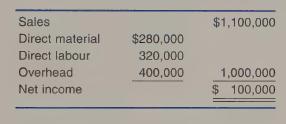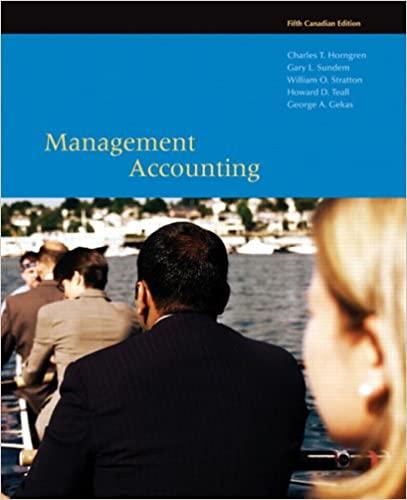The budget for the University Printing Company for 2007 follows. The company typically uses a so-called cost-plus
Question:
The budget for the University Printing Company for 2007 follows. 
The company typically uses a so-called cost-plus pricing system. Direct material and direct labour are computed, overhead is added at a rate of 125 percent of direct labour, and 10 percent of the total cost is added to obtain the selling price.
The sales manager has placed a $22,000 bid on a particularly large order with a cost of $5,600 direct material and $6,400 direct labour. The customer informs him that he can have the business for $19,800, take it or leave it. If University accepted the order, total sales for 2007 will be $1,119,800.
The sales manager refuses the order, saying: “I sell on a cost-plus basis. It is bad policy to accept orders at below cost. I would lose $200 on the job.” The company’s annual fixed overhead is $160,000.
1. What would net income have been with the order? Without the order?
Show your computations.
2. Give a short description of a contribution approach to pricing that University might follow. Include a stipulation of the pricing formula that University should routinely use if it hopes to obtain a target net income of $100,000.
Step by Step Answer:

Management Accounting
ISBN: 9780367506896
5th Canadian Edition
Authors: Charles T Horngren, Gary L Sundem, William O Stratton, Howard D Teall, George Gekas





